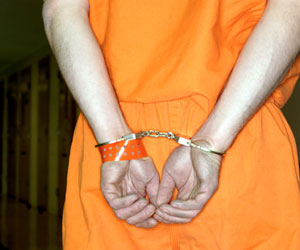Defendant cannot use equitable estoppel to preclude criminal
charges
Defendant said he relied on the
state’s inaction in one county when he pled guilty to false
imprisonment and disorderly conduct charges in another county.

By Joe Forward, Legal
Writer, State Bar of Wisconsin
March 30, 2011 – A criminal defendant who previously pled
guilty to charges could not use equitable estoppel to preclude different
charges that stemmed from the same incident, the District III Wisconsin
Court of Appeals recently held.
In January 2009, James Drown pled guilty to false imprisonment and
disorderly conduct charges in Shawano County after abducting his
ex-girlfriend. Shawano County authorities obtained information alleging
Drown sexually assaulted her in Oconto County during the abduction.
In February 2009, the state charged Drown with second-degree sexual
assault in Oconto County, a month after his plea agreement. But the
Oconto County Circuit Court dismissed the charge, ruling the state was
equitably estopped from prosecuting Drown for the sexual assault.
In State
v. Drown, 2010AP1303-CR (March 29, 2011), the appeals court
– in an opinion written by Judge Michael Hoover – reversed
the Oconto County Circuit Court, ruling the “public interest would
be unduly harmed if the State were equitably estopped from prosecuting
criminal charges.”
The appeals court refused to apply the estoppel doctrine if it
interferes with the police power for the protection of the public
health, safety or general welfare, and noted that “Drown is unable
to cite a single Wisconsin case where the State has been estopped from
prosecuting a criminal charge” or in any capacity in a criminal
case.
The Oconto County Circuit Court concluded that Drown reasonably
relied on the state’s inaction in filing subsequent charges when
he made his plea agreement. But the appeals court noted that equitable
estoppel is unnecessary where defendants already have due process
protections.
“[H]ad the State affirmatively represented to Drown that he
would not be charged with the Oconto County sexual assault charge, he
had adequate due process protections and would not need the aid of the
equitable estoppel doctrine,” Judge Hoover wrote.
